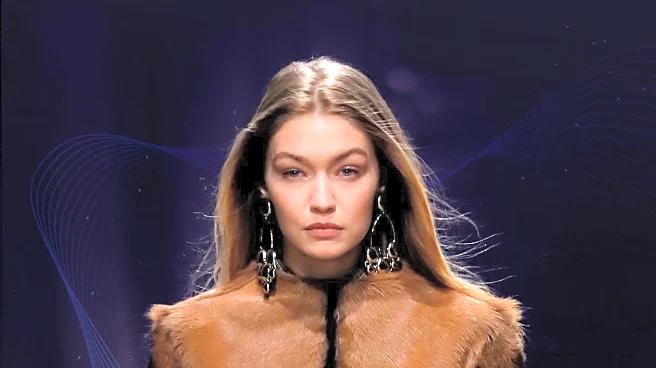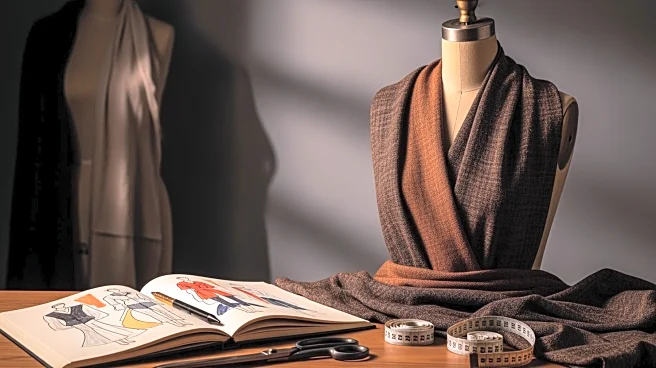What's Happening?
Thylane Blondeau, once dubbed the 'most beautiful girl in the world,' has recently addressed longstanding rumors about her appearance. At the Miu Miu show during Paris Fashion Week, Blondeau, now 24, reiterated her stance against cosmetic surgery, stating she has 'never touched anything.' This comes amidst the 'tired girl' beauty trend, which emphasizes natural beauty and authenticity. Blondeau has been under public scrutiny since childhood, with her appearance frequently discussed and speculated upon. Despite the pressure, she maintains that her looks are natural, attributing any changes to makeup and natural aging.
Why It's Important?
The discussion around Blondeau's appearance highlights a broader societal shift towards embracing natural beauty, as seen in the 'tired girl' trend. This movement challenges the beauty industry's traditional standards, which often promote extensive cosmetic procedures. Blondeau's public stance against surgery aligns with a growing consumer preference for authenticity and self-acceptance. This trend could influence beauty brands to focus more on products that enhance natural features rather than alter them, potentially reshaping industry marketing strategies and product development.
What's Next?
As the 'tired girl' trend gains momentum, beauty brands may increasingly cater to consumers seeking natural and minimalistic beauty solutions. Blondeau's influence, given her public platform and following, could further propel this trend, encouraging more individuals to embrace their natural appearance. The ongoing dialogue about beauty standards may also prompt more public figures to speak out against unrealistic expectations, fostering a more inclusive and diverse representation in media and advertising.
Beyond the Headlines
Blondeau's experience underscores the ethical considerations of media and public scrutiny on young individuals. The early objectification and pressure she faced raise questions about the responsibilities of media outlets in shaping public perceptions of beauty. This case also highlights the potential psychological impact on those who grow up in the spotlight, emphasizing the need for a more compassionate and respectful discourse around personal appearance.










